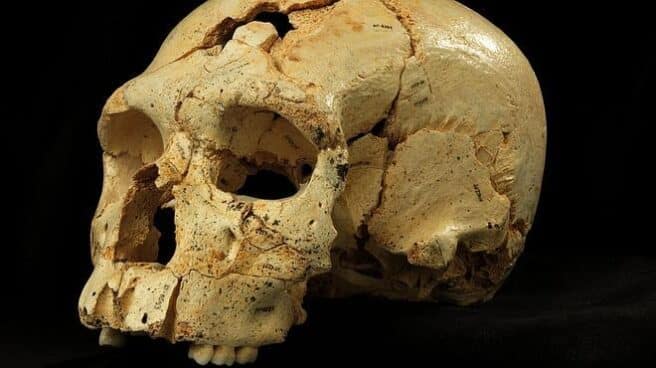

One of the skulls found in Atapuerca.
The population of our ancestors may have suffered from severe period of decline in the early to mid-Pleistocenewith a sharp reduction in nesting individuals, of which only almost 1300 remained, which threatened humanity as we know it.
Study published today The science led by the Chinese Academy of Sciences, proposes a theory that between 800,000 and 900,000 years ago there was “bottleneck” at the beginning of which 98.7% of the ancestral population was lost.
According to the statement, the alleged reasons for the decline in the population are mainly climatic: glaciations that caused temperature changes, a possible long period of severe drought and the loss of other species that are potentially used as a food source.
The study is based on genomic model called FitCoalwith which they were able to pinpoint demographic findings using the human genomic sequences of 3,154 individuals from 10 African and 40 non-African populations.
The model shows that the effectsbottlenecks were found directly in 10 African populations.but in the rest, only a faint sign of their existence was found, ”the authors write.
The period which would have lasted about 117,000 yearscoincides with the time when many researchers believe that the last common ancestor of Denisovans, Neanderthals and Homo sapiens..
Analytical article, which publishes The science and produced by British Museum scientists not involved in the study indicates that this bottleneck theory This must be proven with human fossils. and archaeological evidence for which there is a chronological gap in the African and Eurasian fossil records of the period.
The work also suggests that during the transition between the early and middle Pleistocene, only about 1,280 breeding individuals remained that were able to maintain a population during this period, but with a loss of genetic diversity.
The team, also made up of Italian and American researchers, points out that while the study has shed light on some aspects of Early and Middle Pleistocene ancestors, many questions remain to be answered.
Source: El Independiente